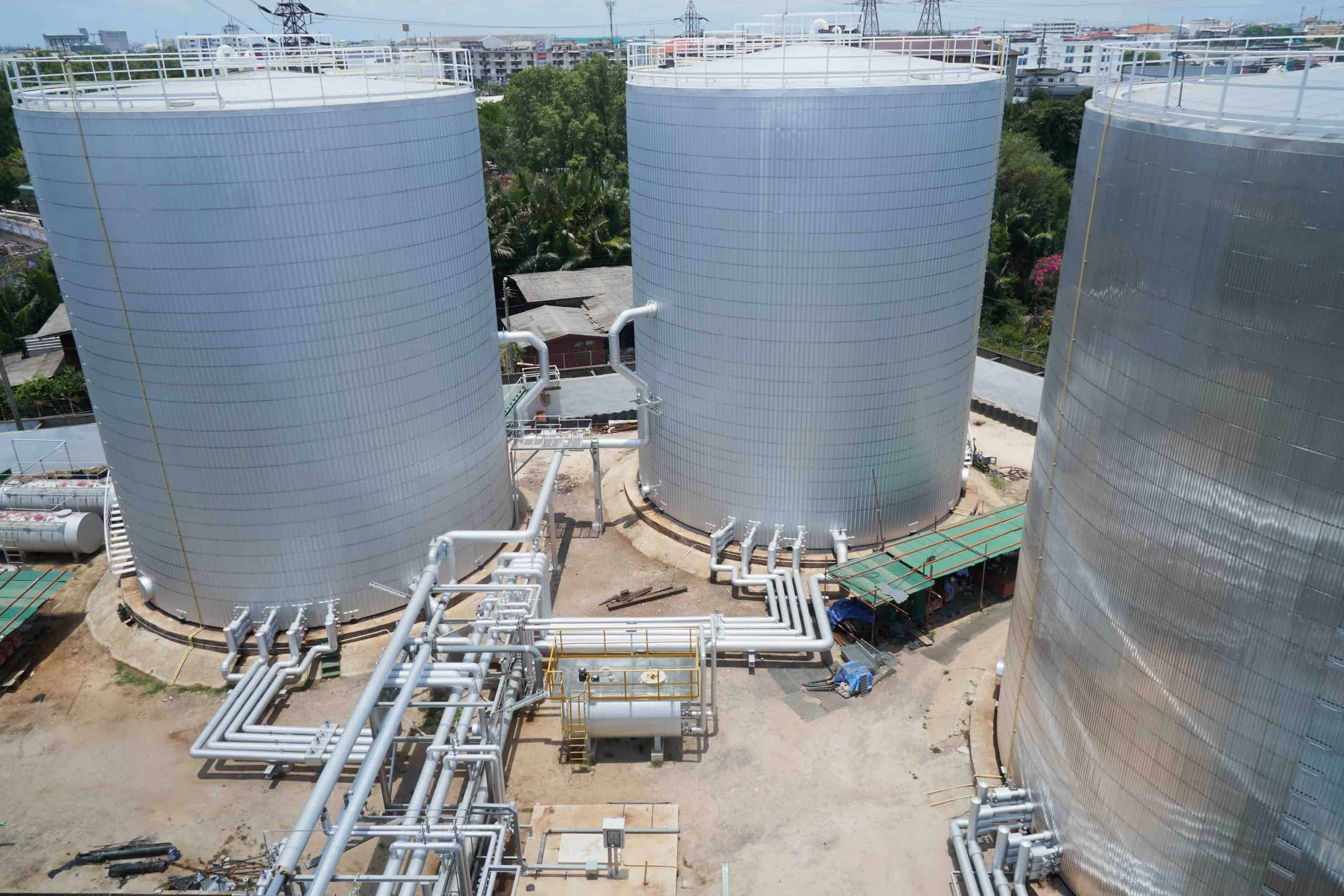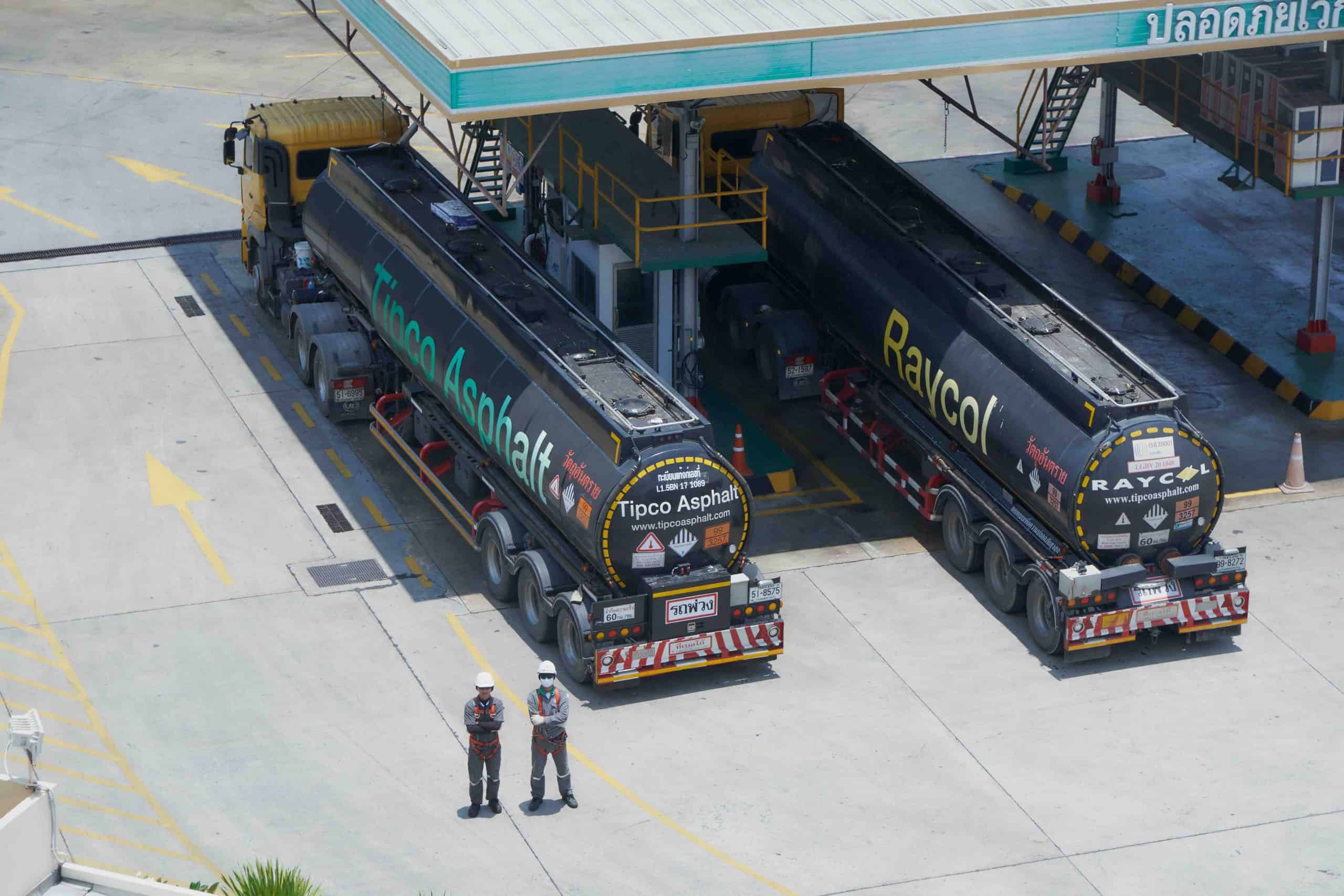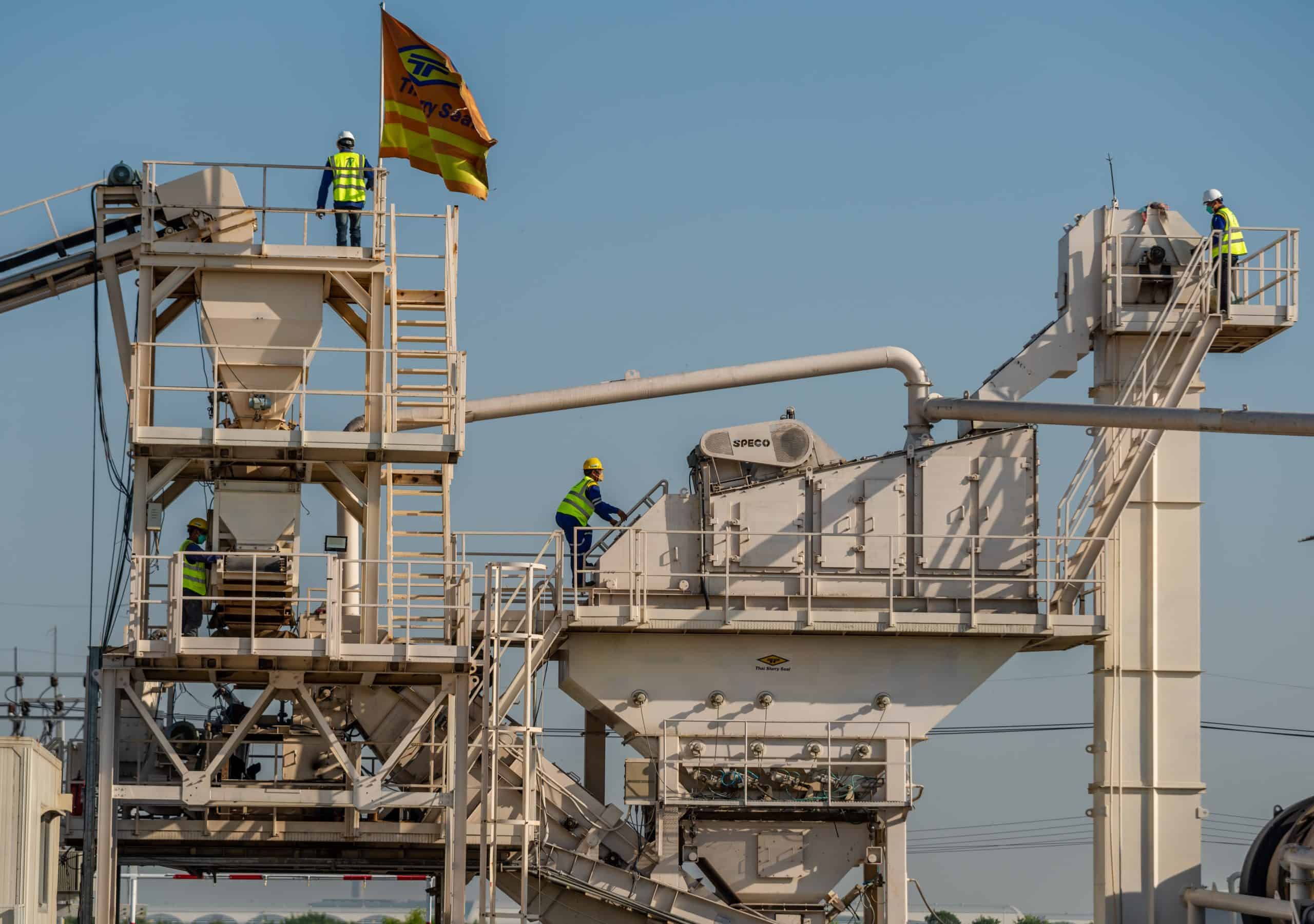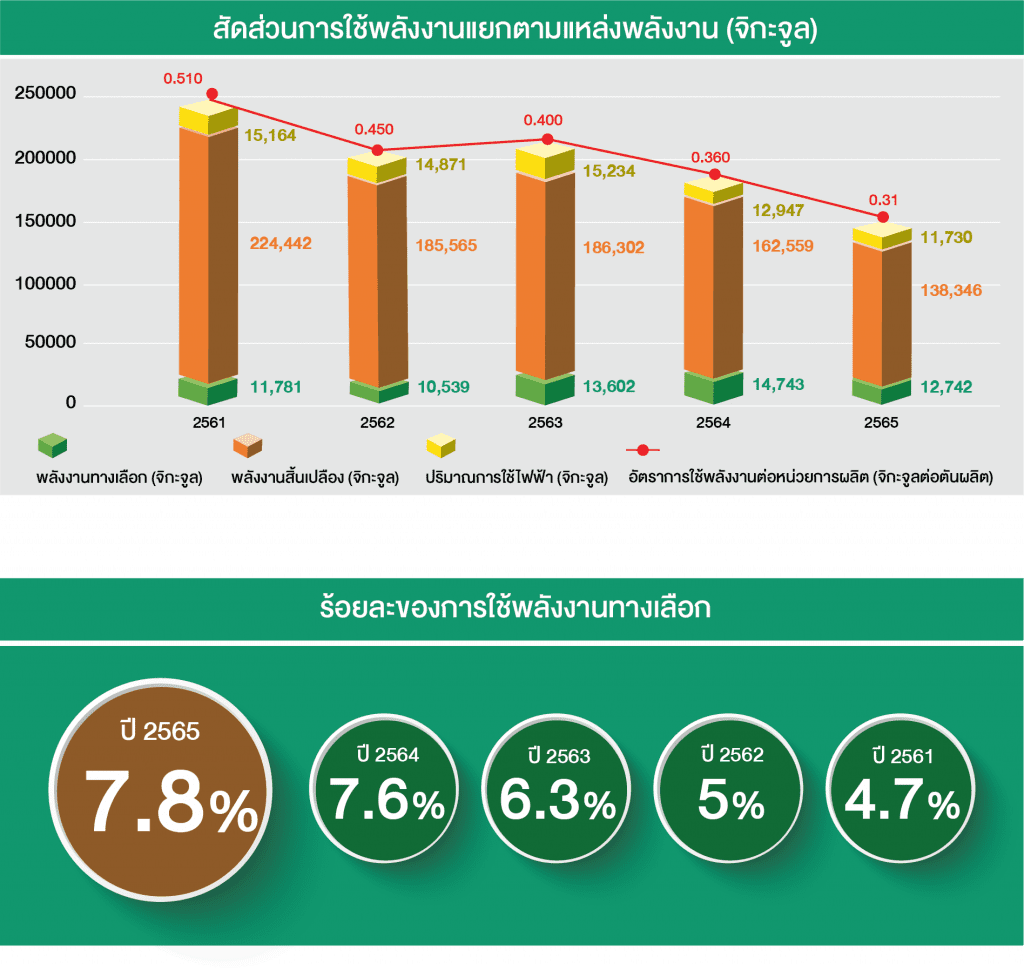การบริหารจัดการพลังงาน
Menu
การบริหารจัดการพลังงาน
การเพิ่มประสิทธิภาพการผลิตโดยใช้พลังงานต่อหน่วยผลิตให้น้อยที่สุดคือเป้าหมายของเรา

GRI 302-1, GRI 302-3 and GRI 302-4
ISO 26000 ISO 14001 and ISO 14001



แนวทางการดำเนินงาน
เราสนับสนุนพนักงานในทุกระดับตลอดห่วงโซ่คุณค่าในการค้นคว้าและนำเสนอวิธีการ แนวทางใหม่ๆ ในการใช้พลังงานอย่างมีประสิทธิภาพพร้อมลดผลกระทบต่อสิ่งแวดล้อม และจากการที่บริษัทฯได้รับการรับรองมาตรฐาน ระบบการจัดการสิ่งแวดล้อม ISO14001 เราสามารถบริหารจัดการกิจกรรมทางธุรกิจต่างๆได้อย่างมีประสิทธิภาพพร้อมมีส่วนช่วยในการปรับปรุงสภาพสิ่งแวดล้อม
นอกเหนือจากแนวทางการบริหารระบบต่างๆที่มุ่งเน้นที่สิ่งแวดล้อม ในช่วงระยะ 3 ปีที่ผ่านมา เราได้บูรณาการ โครงการ นวัตกรรม ต่างๆ ให้ครอบคลุมไม่เพียงแต่กิจกรรมทางธุรกิจ แต่ยังรวม โครงการต่างๆที่มีส่วนช่วยในการลดผลกระทบทางสิ่งแวดล้อมอีกด้วย
นโยบาย : นโยบายสิ่งแวดล้อม
ผู้มีส่วนได้เสีย :
ผู้ใช้ถนน ชุมชน คู่ค้าธุรกิจ และ พนักงาน
เป้าหมายระยะสั้น :
- การลดอัตราการใช้พลังงานทั้งหมดต่อหน่วยการผลิต 3% (เมื่อเทียบกับปีฐาน 2563)
เป้าหมายระยะยาว :
- การลดอัตราการใช้พลังงานทั้งหมดต่อหน่วยการผลิต 6% (เมื่อเทียบกับปีฐาน 2563)
ผลการดำเนินงานที่สำคัญประจำปี 2565 :
- การใช้พลังงานอยู่ที่ 162,818 กิกะจูลในปี 2565 หรือลดลง 22.7% จากปีฐาน 2563 (0.31 กิกะจูลต่อตันการผลิต) ของธุรกิจการผลิตยางมะตอยในประเทศไทย
การใช้พลังงานของกลุ่มธุรกิจยางมะตอยในประเทศไทย

